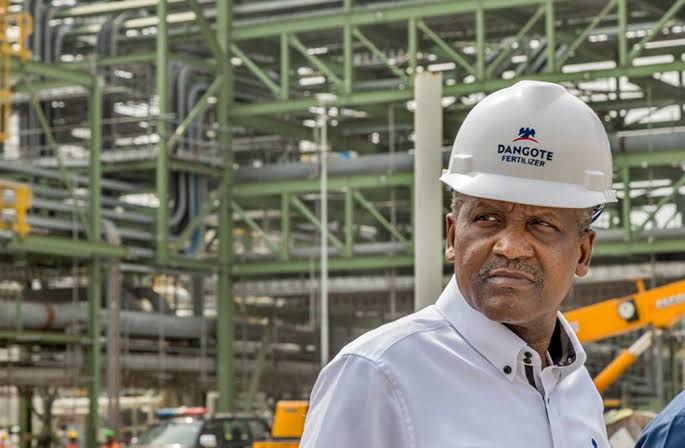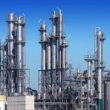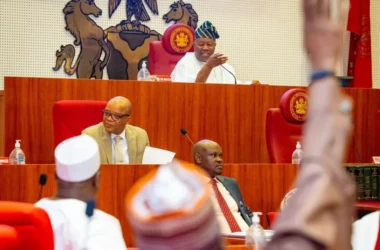Aliko Dangote, President of the Dangote Group, during a recent visit by the leadership of the House of Representatives to the Dangote Refinery in Lagos State, expressed serious concerns about the quality of diesel being imported into Nigeria. He asserted that many of these imported petroleum products are substandard and pose a risk to unsuspecting consumers.
Dangote made these comments on Saturday during a visit led by the Speaker of the House of Representatives, Tajudeen Abbas, and his deputy, Benjamin Kalu. He emphasized the need for a thorough investigation to determine whether there are deliberate actions within the oil sector aimed at undermining his business or compromising the quality of products available to Nigerians.
To verify the quality of diesel in the market, Dangote suggested that independent tests be conducted at various filling stations. “The most important thing, Your Excellency, is to note that the imported one they are encouraging, is the spec in the test, but in certain cases, when you check (independently), different results will show,” he said.
Refuting allegations from the Chief Executive Officer of the Nigerian Midstream and Downstream Petroleum Regulatory Authority, Farouk Ahmed, who claimed that products from Dangote’s refinery were substandard, Dangote presented evidence to support the superior quality of his diesel. Tests conducted at the refinery’s laboratories using the ASTM D4294 method showed that his diesel had a sulphur content significantly lower than that of imported products.
According to Dangote, the diesel from his refinery initially had a sulphur content of 600 to 650 parts per million (ppm), which has since improved to 87 ppm. He predicted a further reduction to 50 ppm by next Monday. In contrast, diesel samples from two other filling stations revealed alarmingly high sulphur content of 1,800 ppm and 2,600 ppm respectively.
He said, “Our quality is about 600 to 650 ppm and is one of the best in terms of quality at that time when we started. But as of today, we’re at 87 ppm.” He invited regulatory authorities to test his products independently, confident that they would find the sulphur content below 10 ppm by August.
Dangote also addressed claims of monopolistic practices, clarifying that the Dangote Group did not receive any special incentives during the refinery’s construction. He further announced that the company would not pursue ventures in the steel industry to avoid similar accusations. Instead, he encouraged other Nigerians to invest in the sector to help boost the economy.
Speaker Abbas, noting the conflicting claims from public and private sector players, acknowledged the need for an investigation to uncover any potential ulterior motives. “I don’t know how we have this contradiction of two players representing the public and private sector. I think it is something we need to investigate further to find out if there are ulterior motives,” he said.










